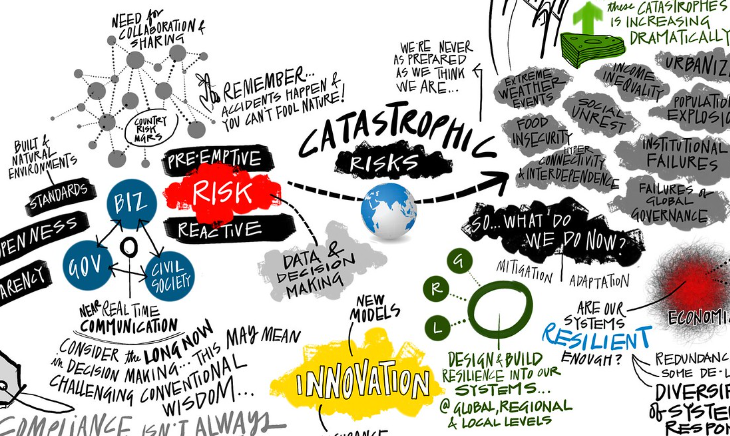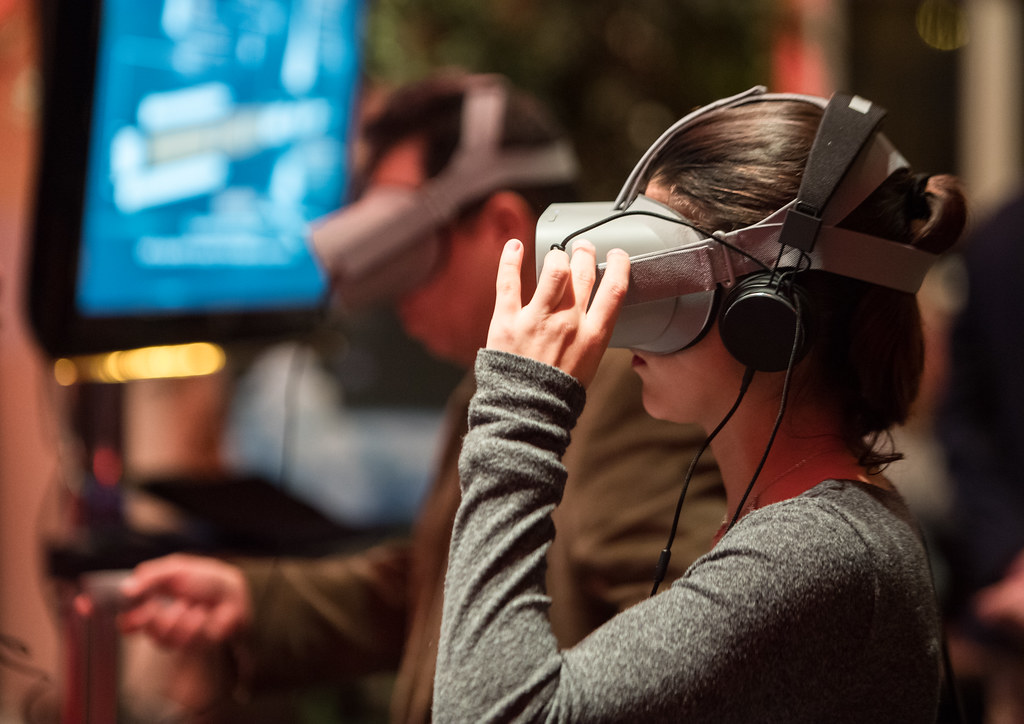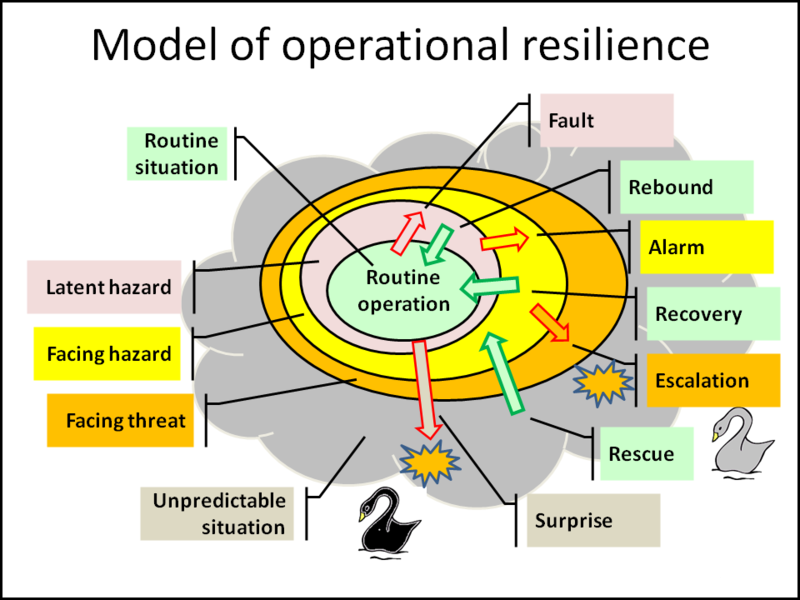
Resilience is more than just a buzzword in today’s industrial sector—it is the underpinning of a company’s ability to navigate the unpredictable tides of economic and operational challenges. Training that imbues resilience is not just desirable; it is a critical investment for enterprises aiming to weather disruptions and emerge more robust.
Resilience in the workforce is a critical quality that empowers employees and organisations to thrive in today’s rapidly changing and often challenging work environment. It equips individuals to effectively cope with stress, setbacks, and adversity, fostering mental well-being, adaptability, and problem-solving skills. Resilient employees are more adaptable, open to change, and better at maintaining positive working relationships. They are also more engaged, productive, and better equipped to handle job-related stressors, contributing to higher retention rates. In leadership and decision-making, resilience is invaluable, as it inspires teams, guides organisations through challenges, and fosters continuous learning. Ultimately, resilience at the individual level enhances organisational resilience, making it better prepared to navigate crises, adapt to change, and maintain a competitive edge. Employers can support resilience through training, a positive work culture, and resources for employee well-being, ensuring a more resilient and successful workforce.
Traditional training regimes, while foundational, often fall short of addressing the dynamic demands of modern industries. They must give way to more nuanced and flexible approaches. Virtual Reality (VR) steps into this gap as a potent enabler, transforming theoretical knowledge into practical, adaptive expertise.
The fast-paced, highly competitive, and technology-driven nature of today’s work environments can contribute to increased stress levels and burnout Job insecurity, frequent organisational changes, and the pressures to adapt to new technologies can erode a sense of stability and familiarity. All these factors combined can make it more difficult for individuals to develop and maintain the resilience needed to navigate the complex challenges of the modern workplace.
Virtual Reality (VR) training can significantly aid in bolstering resilience within the modern workforce. By immersing employees in realistic, controlled environments, VR training can simulate high-pressure scenarios, allowing them to practise and develop their coping skills without real-world consequences. This experiential learning approach enhances adaptability, problem-solving, and stress management, essential components of resilience. Moreover, VR training offers a safe space for individuals to learn from mistakes and build confidence, ultimately better preparing them to tackle workplace challenges. In an era where the demands on the workforce are constantly evolving, VR training is a powerful tool to nurture the resilience needed to thrive in the face of adversity and change
At the forefront of this revolution stands Avatar Academy, whose VR-based methodologies offer a glimpse into the future of industry resilience training. With VR, the preparation of workforces transcends conventional boundaries, nurturing an agile and strategically forward-thinking cadre of professionals.
This blog examines the intersection of VR training and industrial resilience, spotlighting Avatar Academy’s role in equipping sectors with the tools for endurance and adaptability. We will dissect how immersive training is not merely an adjunct but a cornerstone of the resilient industries of tomorrow.
Understanding Industry Resilience
The fulcrum of industry resilience lies at the intersection of foresight and flexibility; it’s where long-term planning meets the robustness of systems and processes. Training, often overlooked in its strategic role, serves as the bedrock of this resilience. Industry training resilience, then, refers to the robustness of an organisation’s educational frameworks—their ability to ensure continuous skill development and knowledge adaptation amidst the whirlwind of market and technological changes.
By imbuing workforces with versatile skills and fostering a culture of perpetual learning, organisations build their resilience. They create a scaffold that not only supports the current operational weight but is also capable of flexing and expanding with future demands.
This resilience is especially pertinent when considering industries where technological advancements are not mere possibilities but daily realities. The biopharma and medtech sectors, for instance, reside at the sharp end of innovation, where any inability to pivot and adapt can be the difference between leading the market or lagging woefully behind.
Therefore, when we look closely at what makes industries resilient, we see that knowledge and skills are fundamental. These are sharpened through comprehensive and proactive training programs. It’s this kind of planned and focused training that enables industries to not just survive but to prosper in the face of global market fluctuations.

The Role of Training in Building Resilience
Resilience in industry is not innate; it is cultivated through rigorous and continuous training. It’s this perpetual cycle of learning that equips employees with the agility to respond to and recover from challenges. When disruptions strike, a well-trained workforce stands ready, not just to implement well-rehearsed protocols but also to innovate solutions on the fly. Take, for instance, the cybersecurity sector, where continuous training on emerging threats allows organisations to rebound quickly from breaches, often emerging more secure and knowledgeable.
How VR Elevates Industry Resilience Training
Virtual reality revolutionises resilience training by simulating real-world complexities in a controlled, scalable environment. VR’s immersive nature allows employees to rehearse responses to crises without the risk or cost associated with real-world failure. This not only prepares them for the known but also equips them with the composure and adaptability needed for the unforeseen.
Avatar Academy: A Tool for Enhancing Resilience
Enter Avatar Academy, a VR training platform tailored to fortify industry resilience. It provides a simulated learning space where mistakes become lessons, not liabilities. Avatar Academy’s simulations mirror real-world complexities, ensuring that training is not an abstract concept but a tangible experience, enabling workers to hone their skills in a realistic yet risk-free environment.

Real-World Applications and Success Stories
Consider the high-risk environment of chemical manufacturing. VR training programs like those offered by Avatar Academy have allowed operators to practise procedures that keep production lines running smoothly, minimising downtime, and maximising safety. In such scenarios, VR training has not only averted potential disasters but also cultivated a more adept and responsive workforce.
Future of VR in Industry Resilience Training
Looking ahead, VR is set to become even more integral to industry resilience training. Advancements in haptic feedback and AI will render simulations indistinguishable from real-life experiences. This will prepare industries not just for current challenges but for future disruptions, potentially transforming the landscape of workforce development and operational readiness.
Industry resilience depends heavily on ongoing learning and robust training. Virtual reality, especially through platforms like Avatar Academy, is reshaping how this training is delivered. It offers practical and achievable ways to build resilience. As industries change, the methods to enhance resilience will also advance, with VR/XR at the forefront. This ensures that businesses are ready and equipped to handle any challenges that may arise in the marketplace or the broader world.